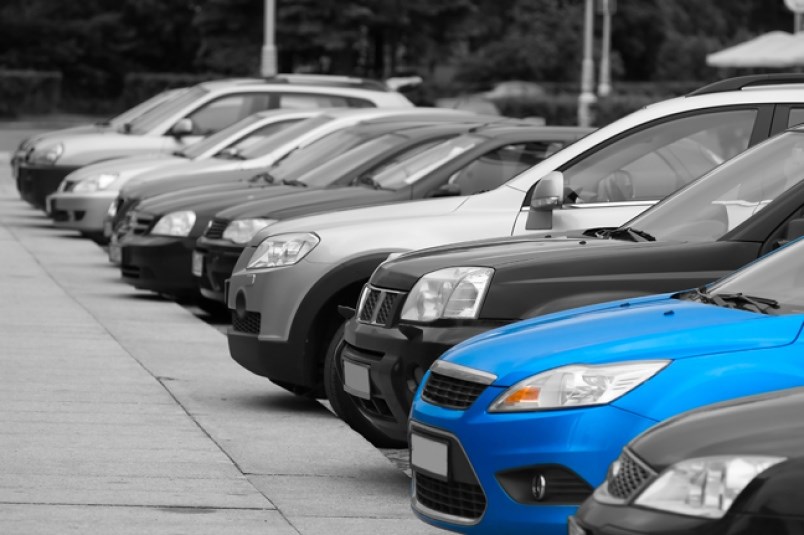Hitting a top speed of 490 kilometres per hour, a new version of the Bugatti Chiron is now the fastest production car in the world.
Prices start at $2,980,000. Over at Lamborghini, they’ve just launched the new 819 horsepower Sian hybrid, which is already sold out at $3.6-million a pop. At the same time, the just-revealed Taycan heralds in a new age of electrified performance for Porsche. It costs $213,900 in top trim.
It’s all very exciting and wonderful, and yet I find myself curiously unmoved. The price tags on these machines might as well be written in crayon for all the basis they have in reality. Never mind fancy stuff, can’t we get back to cheap and cheerful?
There are many instances where the latest and greatest machine makes a great deal of sense. New cars offer full warranties, reasonable financing rates to bring the monthly payments down, and have the best technology and safety on offer. Also, you can pick out the model you want rather than getting stuck with purple paint and a beige interior.
However, for most people, and certainly most Canadians, buying a brand-new car is the exception rather than a rule. Far better to let somebody else take that initial hit of depreciation, and look for something that’s got a few gentle miles on the odometer.
Here’s the thing though. You never know whether the car you’re looking at has had one careful owner … and two maniacally reckless ones. New cars don’t come with a history, but every used car is basically a rescue dog of some kind. You might end up with a few behaviour challenges to work through.
So here are a few quick tips when you’re shopping for a good, solid used car.
The owner interview
Let’s start by assuming you’re purchasing from a private individual. There are a few added risks here (more on that later), but buying a car from its actual owner does present some opportunities.
Age-old questions like, “Why are you selling it?” and “How long have you had it?” are worth their weight in gold. Basically, you’re a detective here, interviewing a suspect.
The best person to buy a car from is the sort of person you’d never want to meet at a party. If they’ve got an obsessive list of every service ever performed, and seem a bit fussy, that’s probably a good sign.
Further, you’re going to want to see the evidence. Any well-cared for car comes with a paper trail, or at least it should. One specific tip I can offer you is that a BMW dealership can sometimes pull up a car’s entire service history from its key. Otherwise, get whatever paperwork you can.
Understand your protections
The unscrupulous used car dealer has long been a stereotype, and not without cause. Having said that, there are laws in place to protect you if the used car you’re looking at is on a dealer lot.
For a full list of what you’re protected against, visit the Motor Vehicle Sales Authority website (mvsabc.com). Briefly, however, a dealer has a legal obligation to disclose any accidents over $2,000, whether the car was used as a lease or taxi, and whether it was registered out of province. You’re also protected against liens.
It’s a good idea to ask a dealer for any documentation they have on the car, including a copy of the ICBC accident record.
Trust no one
It can be hard to be suspicious, especially if you’ve got a good rapport with the seller. However, even the best people make mistakes, and the seller may not have recognized that the “funny noise” from under the hood once in the while is more serious than a slipping belt.
Thus, the necessity of having a third party inspection. Now, we’re not talking having your brother-in-law Larry give the car a once-over, as he’s got a subscription to Trans-Am Enthusiast Weekly. Having a proper mechanic look over a car for deficiencies is money well spent in ensuring that you’re buying a car without too many issues.
If the car is a relatively new model, it’s worth having this inspection done at a dealership that matches the brand. If it’s a bit older, a specialist mechanic usually is familiar with the problem areas to look for.
Negotiation
Not overpaying for a used car is a bit of a delicate process. You can keep yourself best informed by looking at the average price of the model you’re considering across Canada, and then comparing mileage and condition. Do, however, be aware that we tend to pay a bit of a premium for cars in B.C., thanks to our mild winters.
That mechanic’s inspection you’ve just had done? It’s a powerful bargaining tool in your arsenal, giving you a concrete idea about what costs will be coming up in the future. If the tires are new, great – if you’re going to have to pay for them next winter, take that into account.
Once you’ve settled on a price, a dealer will usually want some kind of deposit. Note that it is very hard for a dealership to hold this deposit if something comes up and you want to back out (with reason). In a private sale, any exchange of money should be done very carefully, as you don’t have much recourse.
But assuming you get through all that and the insurance agent is helping you pick out your shiny new plates, it’s money well-spent, a thrifty choice, a car that might not be new, but is at least new-to-you. That’s far more satisfying that any Bugatti, no matter how fast.
Brendan McAleer is a freelance writer and automotive enthusiast. If you have a suggestion for a column, or would be interested in having your car club featured, please contact him at [email protected]. Follow Brendan on Twitter: @brendan_mcaleer.



